Interview by Dessislava Berndt with the Fado singer Carminho
Proofreading: Polina Georgieva
The Festival Klangart is held for the 10th time this year in Wuppertal. Art, music and nature can be felt and appreciated together with world known musicians bringing the richness of their musical cultures.
I am lucky to exclusively present to you the Fado singer Carminho who performed there on July 22. The show of Carminho and her musicians was very impressive and ended with standing ovations.
Carminho shared with the audience some very personal stories and with a lot of humor made sure best mood and welcome feelings were there all the time.
Carminho, are you for the first time in Wuppertal?
Yes, we‘ve just arrived. I saw this beautiful building (editor’s note: Villa Herberts, called also Villa Waldfrieden) and was fascinated by all of the rooms and the details, the pictures, the curves, the decoration of the house…
I also walked through the amazing park till his end to the exhibition of Markus Lüpertz with his big sculptures.
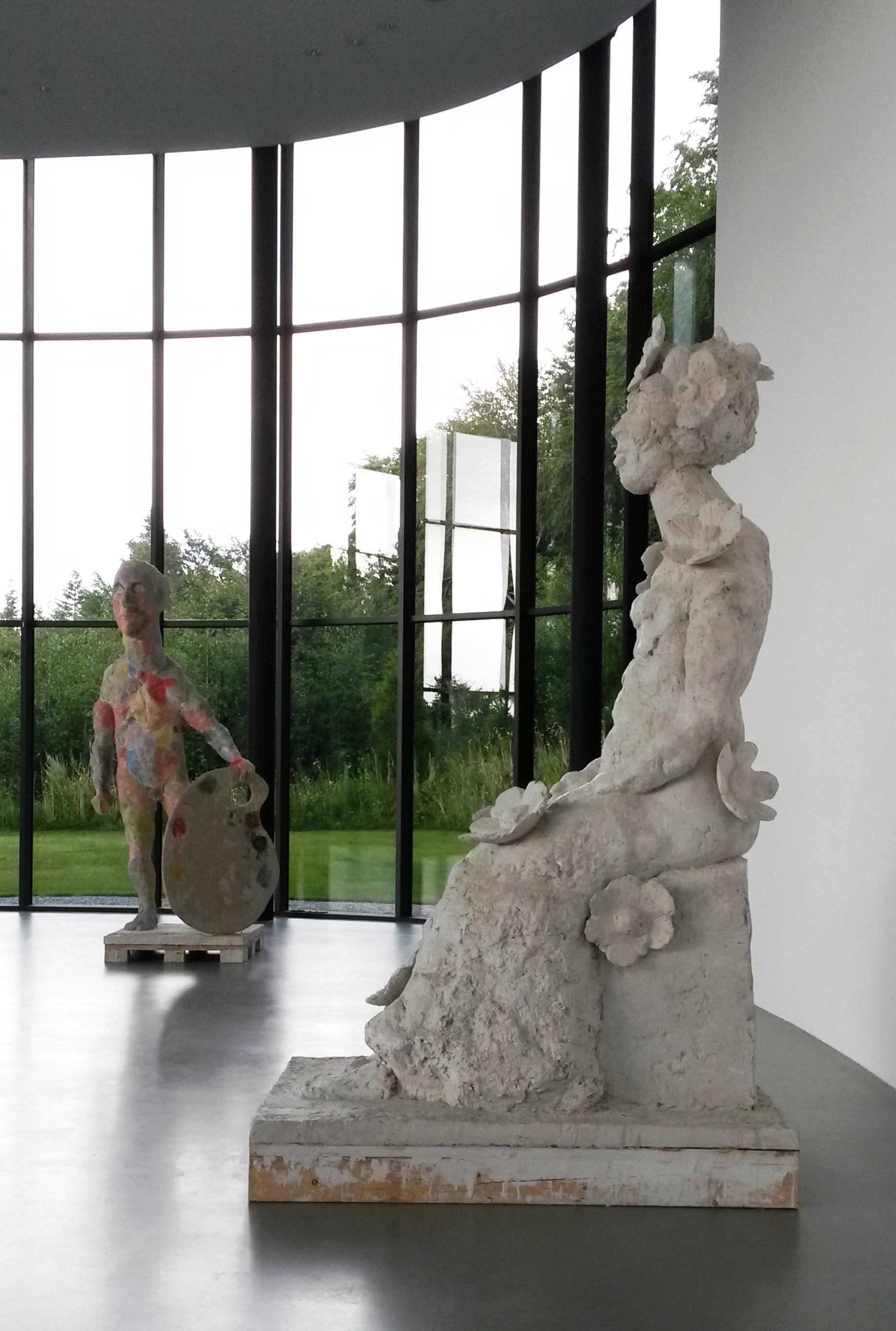
Exhibition Markus Lüpertz in Skulpturenpark, photos: desenze
Besides them, I walked along the sculptures of Tony Cragg positioned in the middle of the nature. For me, this is like a museum in the jungle. It reminds me of the museum Inhotim where I was very inspired – a 1200-hectare park in the south of Belo Horizonte Brazil, with a lot of pavilions and exhibitions in the middle of the jungle. I am looking forward to singing at this beautiful place (editor’s note: Skulpturenpark Waldfrieden Wuppertal) tonight.
And what about the reaction of the audience in Germany, where you have been several times?
Since 2010 I‘ve been coming to Germany for concerts. Last time I was in the Philharmonie in Cologne and also in the Elbphilharmonie in Hamburg.
It is incredible to see the reaction of the audience in Germany. You don’t expect it. We, Portuguese people, are very Latin and expressive. And we expect more coldness from the people here. But it is completely the opposite. The reactions are warm and with knowledge and interest about the culture, the language, the instruments and why we sing. Because Fado is a language and a way of living, not only just music, I am often asked to explain the process of becoming a Fado singer.
Since 2011 Fado is part of the UNESCO Cultural Heritage. What does Fado mean to you? Why did you choose to sing Fado?
I didn’t choose Fado. Fado probably chose me. My mother is a Fado singer and she did a lot of Fado sessions at home when I was young, about 1-4 years old. And I saw and listened live to Fado and was touched thereby. So, it is something that gets into you without understanding why and what it is. It is like learning a new language, like you learn to speak your mother tongue. It is for me like the Portuguese language. I don’t know how and when I learned it, but at the end I know how to speak Portuguese, the language of Fado.
Did you get some lessons in singing?
In my family history, my mother has a Fado house where I could learn everything and listen to the poets and the musicians and to the advices of my mother. The stories in the songs are more or less everything. I had no lessons in Fado singing, because there are no schools and books of Fado. You need to listen to older singers and to think by yourself, to draw conclusions about your life and about what you have to say.
Do you like the traditional Fado or the mixing with other styles?
I like and I do traditional Fado as it is. Of course, I like other kinds of music and the Portuguese music is rich, it is not only consisting of Fado.
Fado is the main genre but you have different folklore music and influences from the islands, from North and South Portugal. And I like to sing everything. For example, I have an album only with Tom Jobim songs. It was an invitation from the family, from his son (editor’s note: guitarist Paulo Jobim) and his grandson (pianist Daniel Jobim) and we did an album together (also with the cellist Jaques Morelenbaum and the drummer Paulo Braga). And I went to Brazil where I sang songs only from Brazilian composers and duets with Brazilian singers like Chico Buarque.
I am open to do something different like this and I had the amazing opportunity to sing and to work with this incredible family. They are an inspiration for me and to work with your inspiration is something that can happen only once in life. And I had the honor and the luck, but I also worked hard to achieve this.
Fado come into my voice, I don’t know how because Fado is not a kind of music but the way of looking to the lyrics, to the music and to match both even if you sing other kinds of music. But matching traditional Fado with different instruments – I don’t do this because I don’t have the potential to change Fado. Then again, Fado is rich enough to be explored and there is no need to change and to put other instruments. I like the pure Fado but I am open to other kinds of music.
You also composed some Fado pieces. How was it and why?
This was another way to express myself. It is not very common. The singer is traditionally a woman and the composers are men. So in this men’s world women suffer this oppression, as the story says. The border is not so clear. But we need each other. Fado is not working for a single person. Furthermore, now we have the opportunity to change it.
We don’t need to restrict the music to men and the singing to woman. We are free to do what our hearts say to us. I don’t consider myself as a poet because I respect the poets too much. But I like to take some risk and to try something new.
Is Fado by woman’s singer dominated?
If you go to a Fado house you will find both a woman and a man Fado singer. But the most popular combination you have is a woman singing and a man playing Fado. You need to believe what you sing, so maybe there is Fado only for woman or for man. But if you sing about feelings, it doesn’t matter if you are a man or a woman.
It is a men’s world and also in the Fado world traditionally it was the men that played and composed the music; also, most owners of the Fado houses were or are man. Then, they married with good Fado singers to show off to everybody. There are examples of men trying to stop the woman from singing because of jealousy. The woman married and started to cook and sometimes she sings for the crowd in the Fado house but not to make an international career…
Maybe Fado needs to express feelings and that is not so much the nature of men. When they want to show feelings it is strange and it can be linked to reality, since Portuguese men have to be tough and not to express too much feelings. But I hope this will change because in Lisbon we need the change and the Fado progress to come from the inside.
You worked with famous musicians like Mariza, Pablo Alboran and the Jobim’s family. What kind of experience is it working with such musicians and singing in other language?
I like to sing in Spanish and it doesn’t matter in which language I am singing.
Usually, the experience working with other colleagues was good. Nevertheless, I have to be and to remain myself, to be and to remain what I am.
If you are singing in other language or with other musicians you need to know who you are. In this union you have to be something special. But there are a lot of temptations when they are very popular or very pop or very different.
Would you please tell us something about your plans?
We are doing a tour and then my next album with compositions and lyrics, also mine. I hope to finish the album by the end of the year and to come soon again to Germany and hopefully to Bulgaria.
A few years ago you were in Bulgaria. How was it there?
I was once in Bulgaria but it was wonderful. Small countries have restrictions because of the size and geography, and also there are rich and poor countries. Poor countries have difficulties to open the way to culture for everyone. And that is so important. For me it is a blessing to sing in such places where a lot of people don’t have the opportunity to go to so many concerts. And they cannot choose all the time between different events. If people give you the feeling that you are so special being there and singing for them, this is wonderful.
How can you describe you as a person?
I am decisive, trying to be loyal and genuine in what I do. And I am always following my instinct.
Why did you do the voluntary year travelling around the world?
I did a tour around the world because I was lost. I was singing almost six years in a Fado house and had some 4-5 proposals from big music companies to make an album. I was so lost and didn’t know what to do. I took all the earned money and did a trip around the world to learn more about me and the world, people, life…
I returned completely different and found out that all I wanted was to sing Fado, because this makes me happy and probably other people around me.
Carminho, thank you very much for the interview and good luck tonight!
Carminho was born among the guitars and voices of fado, daughter of the renowned fado singer Teresa Siqueira. She began singing in public at the age of twelve in the Coliseum. During college Carminho sang in Fado clubs and received several proposals to record but she decided to wait. She graduated in Marketing and Advertising and realized that singing required a maturity that she did not have yet. Carminho traveled for a year, participated in humanitarian missions and returned to Lisbon determined to devote herself entirely to an artistic journey.
“Fado,” her first album, was released in 2009 and became one of the most acclaimed albums of the year and the decade. It achieved platinum – an enviable result for a debut album – and opened the hearts of Portugal to her voice, and the doors of the world to her talent: in 2011 “Fado” was considered best album for the British magazine “Songlines”. Carminho performed in the main European capitals, also at the Womex 2011 in Copenhagen and at the Paris headquarters of UNESCO as part of the Fado application for world heritage.
In the same year, she collaborated with Pablo Alborán in “Perdoname” and became the first Portuguese artist to reach number 1 of the Spanish top.
In 2012, the second album, “ALMA”, debuted in the first place of sales in Portugal and reached prominent positions in several international tops. After performing in the main venues of Europe and around the World in countries like Finland, Sweden, Peru, Chile, Argentina, Colombia, China, India, Latvia, USA, Germany, United Kingdom, South Korea, Poland, France, Austria, Denmark, among many others, she also performed in Brazil.
Her dreams of recording with Milton Nascimento, Chico Buarque and Nana Caymmi came true, resulting in a reissue of “Alma” with three new songs. Carminho thus began to conquer Brazil, with sold out concerts in Rio de Janeiro, São Paulo and other places throughout the country.
In 2013, Carminho was awarded the Portuguese Golden Globe for Best Solo Artist and the Carlos Paredes Prize.
At the end of 2014, “Canto” was released, and her relationship with Brazil took on even deeper roots, with Caetano Veloso’s first partnership with his younger son Tom, who offered her the unpublished “O Sol, Eu e Tu”. “Canto” also includes the duet with Marisa Monte and special guest appearances by Jaques Morelenbaum, António Serrano, Carlinhos Brown, Javier Limón, Naná Vasconcelos, Dadi Carvalho, Jorge Hélder and Lula Galvão.
In 2016, following an invitation by the family of one of the greatest composers in the world, she recorded “Carminho Canta Tom Jobim” with the last band that accompanied him live in his last ten years, and sharing songs with Marisa Monte, Chico Buarque and Maria Bethânia.
At the moment, Carminho continues the world tour of the albums “Canto” and “Carminho Canta Tom Jobim”.

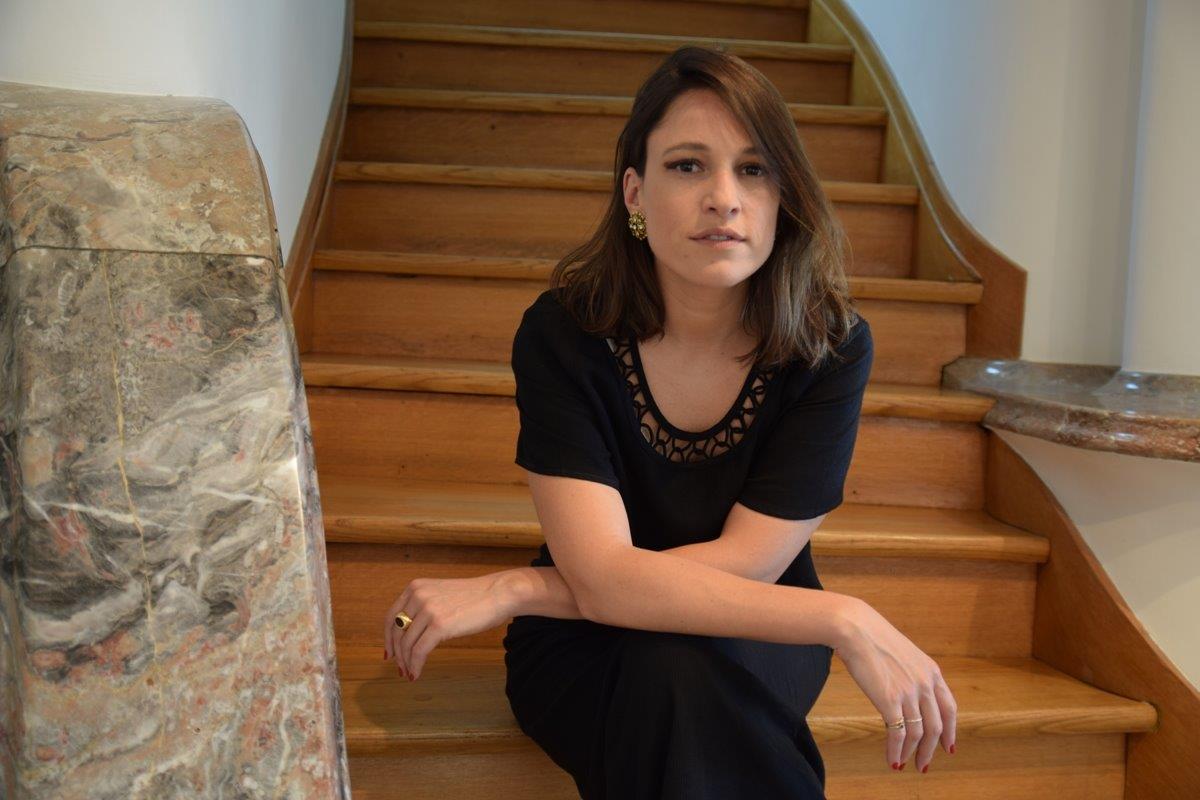

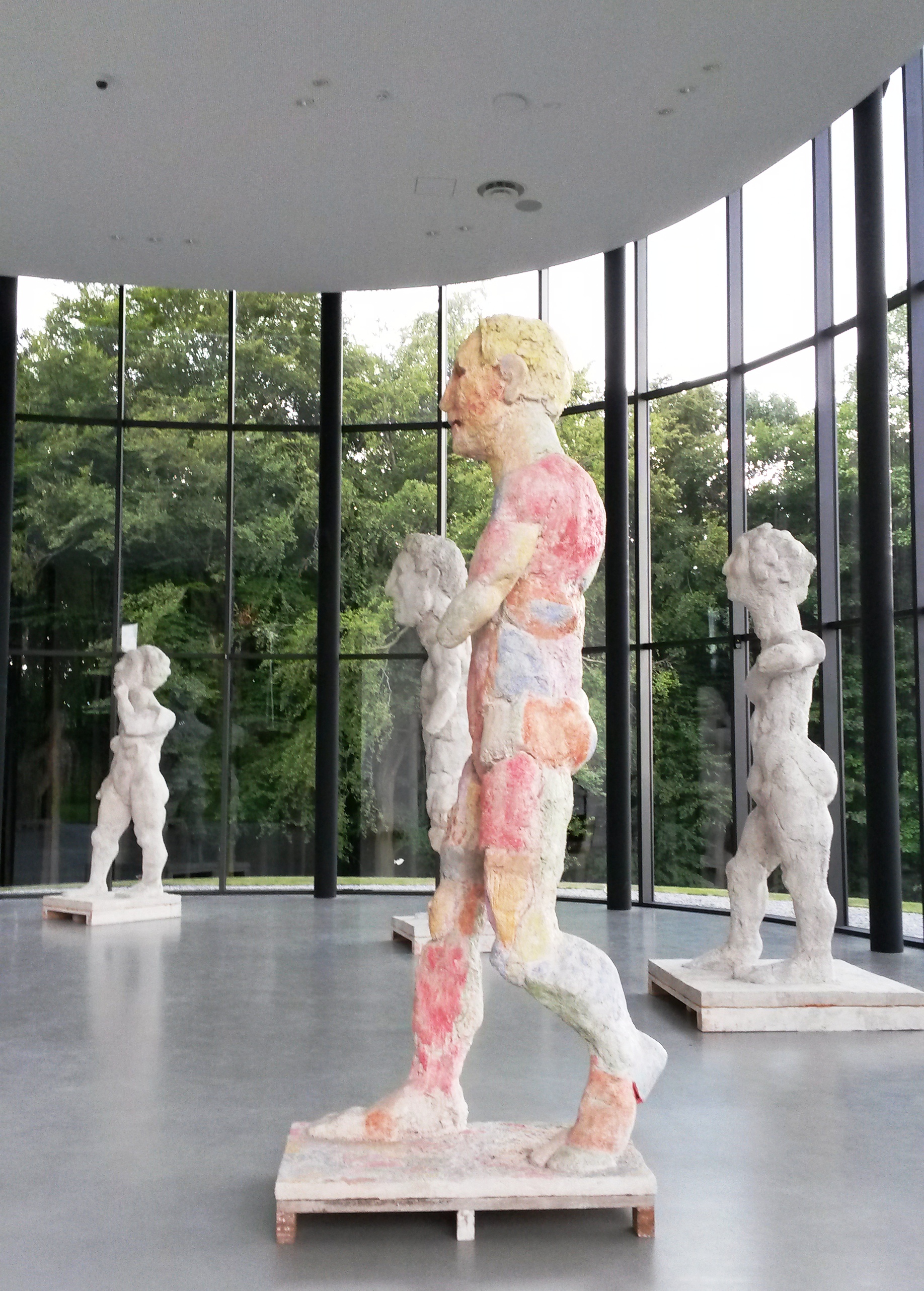
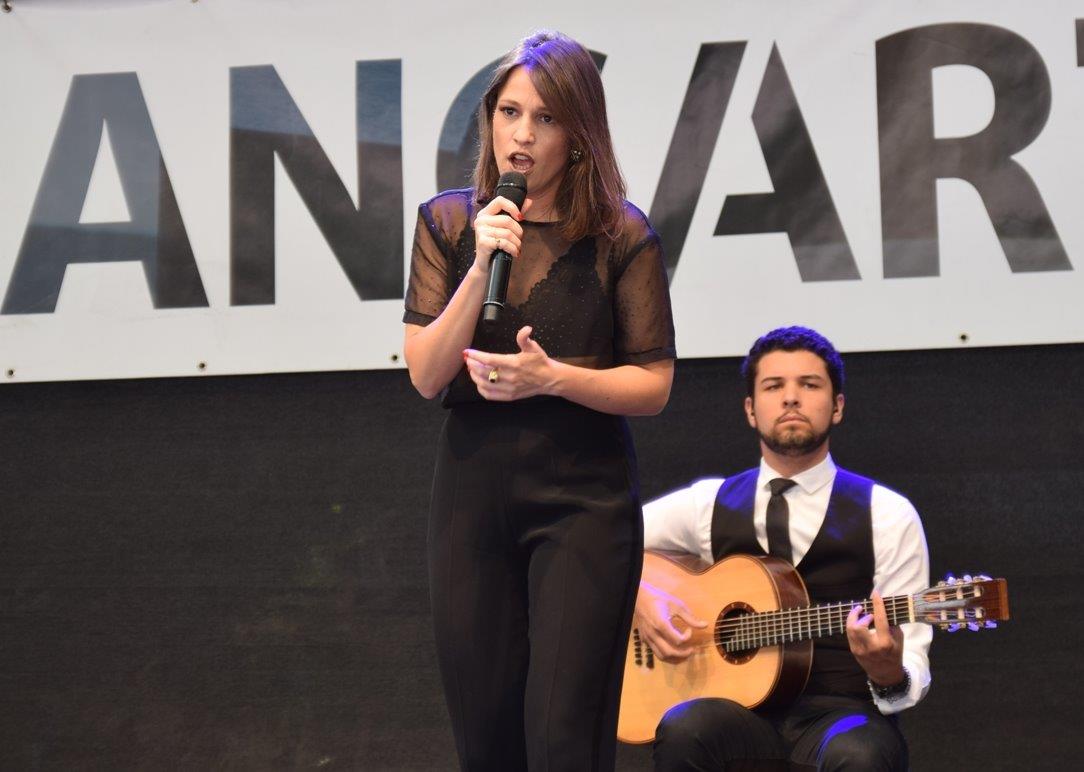
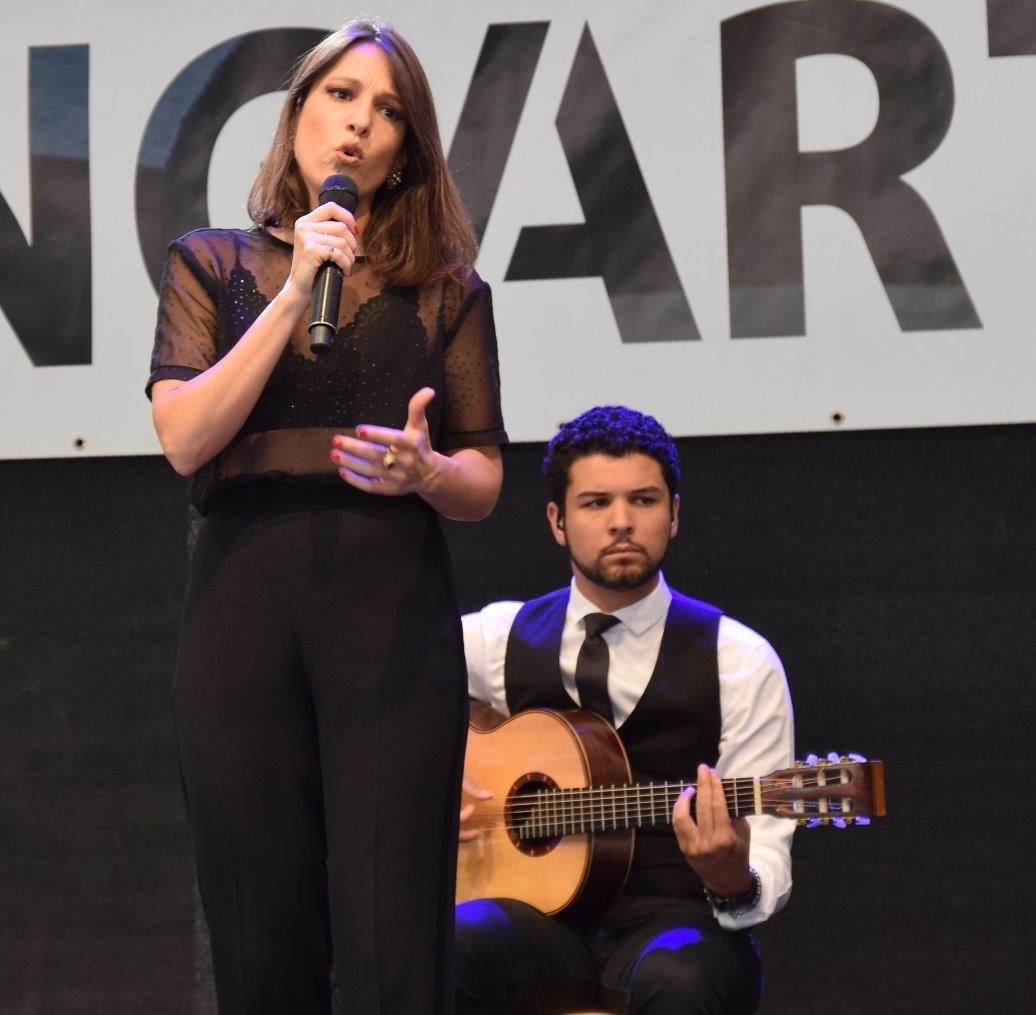
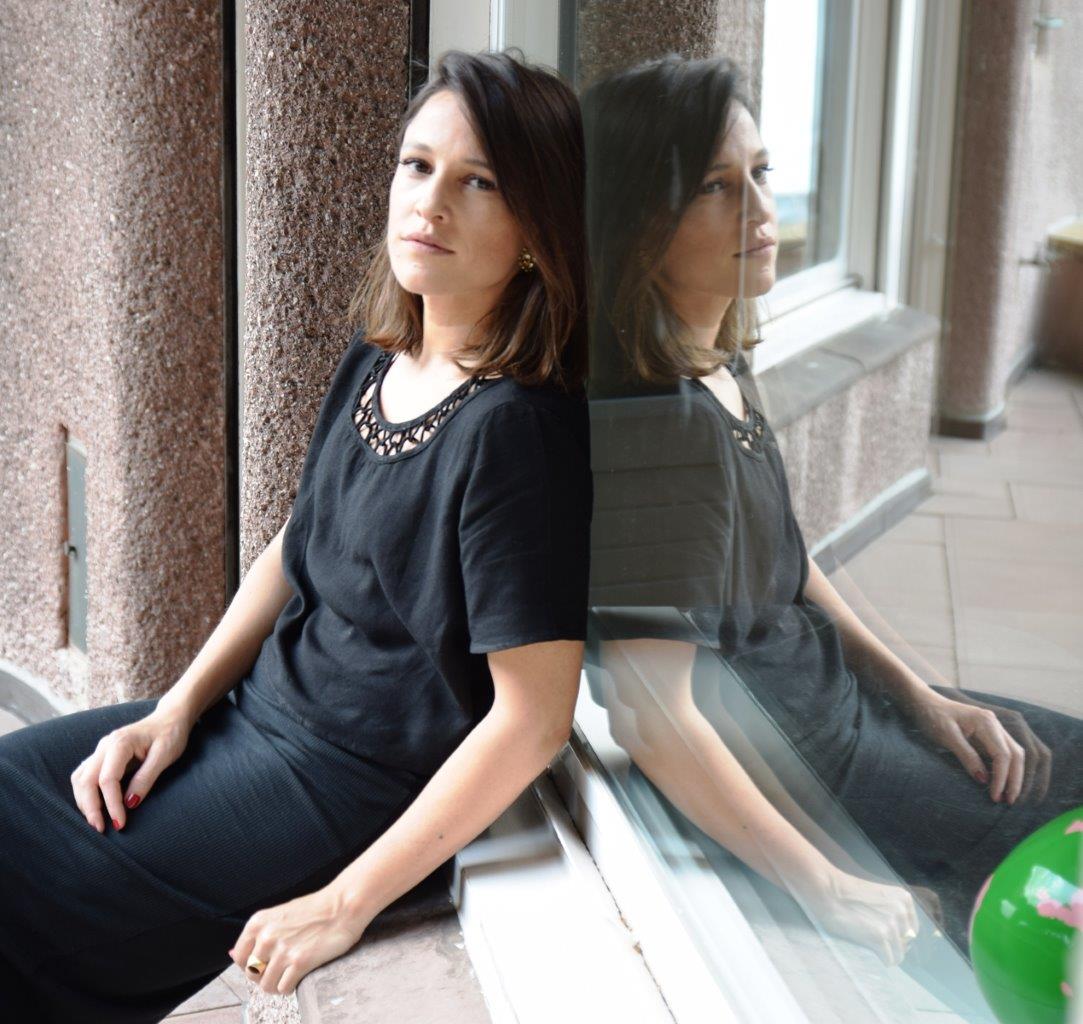

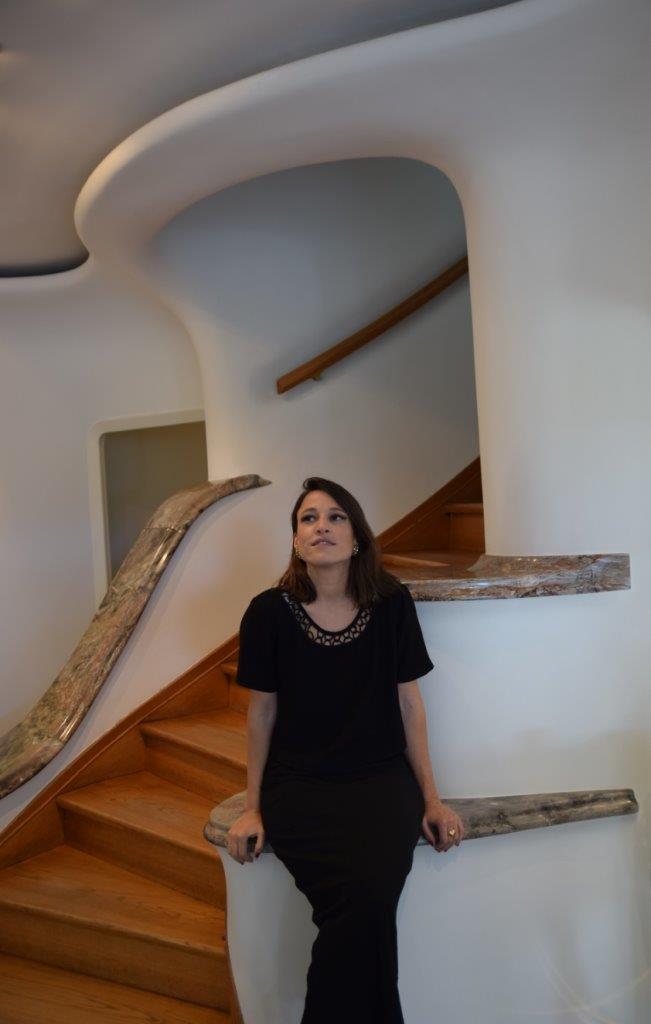
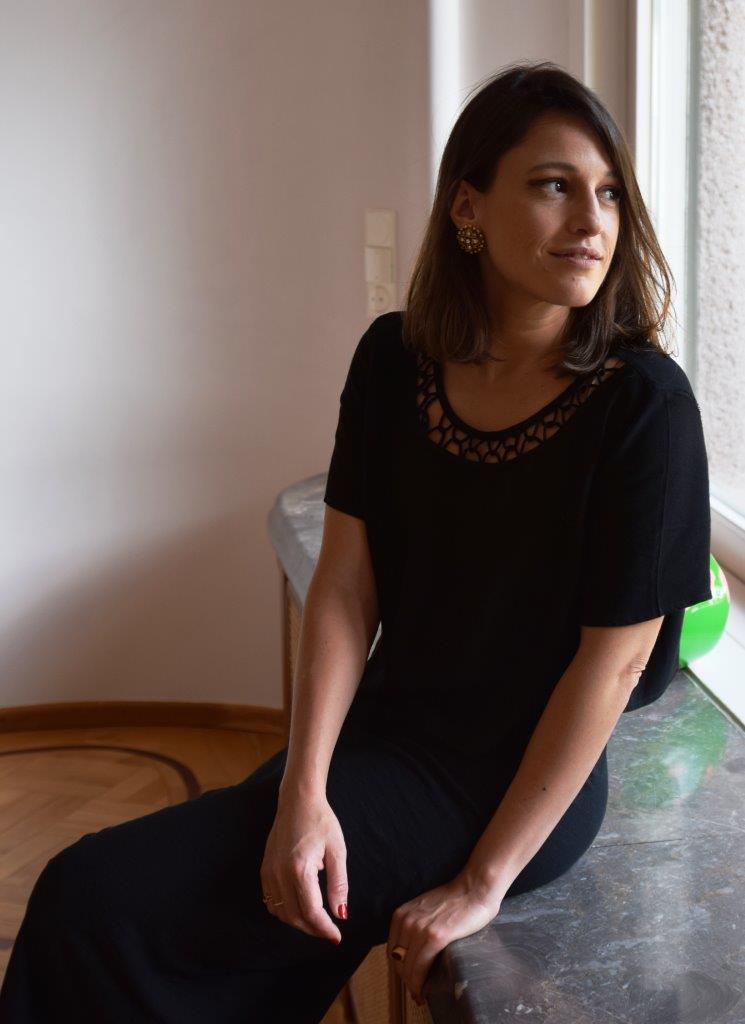










No comments so far ↓
Nobody has commented yet. Be the first!
Comment